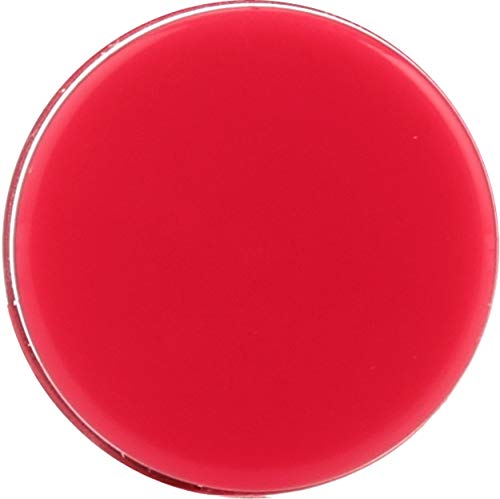






Dr. Bronner's Organic Rose Lip Balm - Nourishing Moisture, Certified Organic - 0.15 oz


Cannabis Sativa (Hemp) Extract
High RiskCannabis sativa (hemp) extract is derived from the hemp plant, primarily used for its potential therapeutic properties. It contains various cannabinoids, flavonoids, and terpenes, which may contribute to its functional benefits in cosmetic and wellness products. The extract is often sought for its calming and anti-inflammatory effects.
Sustai Insights
Cannabis sativa (hemp) extract offers functional benefits such as anti-inflammatory properties and potential skin-soothing effects. It is derived from sustainably sourced hemp, contributing to its appeal. However, there are health risks associated with its use, including low concerns for carcinogenicity and neurotoxicity. Regulatory restrictions exist in certain jurisdictions, marking it as high risk overall. Safe usage should be practiced, particularly in sensitive applications, and alternatives like hemp seed oil may be considered for specific uses.
Thuja Occidentalis (Arborvitae)
Medium RiskThuja occidentalis, commonly known as arborvitae, is a coniferous tree native to North America. It is often used in cosmetics and personal care products for its potential antimicrobial properties and as a fragrance component. Its essential oil is extracted for various applications in aromatherapy and traditional medicine.
Sustai Insights
Thuja occidentalis offers functional benefits, including antimicrobial properties and use as a natural fragrance. However, it may pose moderate allergenic risks and is not associated with significant health concerns like carcinogenicity or reproductive toxicity. Regulatory assessments indicate low restrictions on its use. Environmental impacts include potential for irritation and moderate toxicity to aquatic life. Overall, its risk level is categorized as medium, suggesting careful consideration during usage. Alternatives include other plant-based oils with similar benefits but lower allergenic potential.
Simmondsia Chinensis (Jojoba)
Low RiskSimmondsia chinensis, commonly known as jojoba, is an oil derived from the seeds of the jojoba plant. It is commonly used in cosmetic formulations for its moisturizing properties, acting as an emollient and skin conditioning agent.
Sustai Insights
Jojoba oil offers functional benefits such as effective skin moisturization and is biodegradable, with sustainable sourcing practices. Health risks are low, with minimal concerns regarding carcinogenicity, allergies, and reproductive toxicity. Environmental impact is negligible, with no pollutant or bioaccumulation potential. Regulatory status is favorable with no significant restrictions noted. Overall, it is assessed as low risk, and safe usage practices should be maintained. Alternatives include other plant-derived oils like argan or almond oil, which may provide similar benefits.
Beeswax, Yellow
Low RiskBeeswax, yellow, is a natural wax produced by honeybees, primarily composed of esters of fatty acids and long-chain alcohols. It serves as an emulsifier, thickener, and stabilizer in cosmetic formulations, contributing to texture and consistency. It is commonly used in creams, balms, and lip products.
Sustai Insights
Beeswax provides functional benefits such as enhancing product texture and acting as a natural emulsifier, while also being biodegradable and sustainably sourced. Health risks are minimal, with low concerns for carcinogenicity, allergies, or irritations. Environmental impacts are also low, as it does not bioaccumulate. Regulatory status remains favorable with no current restrictions. Overall, the ingredient poses low risk, making it a suitable choice in cosmetic formulations.
Tocopherol, D Alpha
Low RiskTocopherol, specifically d-alpha tocopherol, is a naturally occurring form of Vitamin E. It is commonly used in cosmetic and personal care products primarily for its antioxidant properties, helping to protect formulations from oxidation and extend shelf life.
Sustai Insights
D-alpha tocopherol provides effective antioxidant benefits, contributing to product stability. It is sustainably sourced and generally regarded as safe, with low concerns regarding carcinogenicity, allergies, and reproductive toxicity. However, there are minor concerns about endocrine disruption. Regulatory bodies have not imposed significant restrictions, indicating low overall risk. Recommended usage practices include adhering to established safe concentration thresholds. Alternatives, such as other forms of Vitamin E or plant-based antioxidants, may also be considered.
Simmondsia Chinensis (Jojoba)
Low RiskSimmondsia chinensis, commonly known as jojoba, is an oil derived from the seeds of the jojoba plant. It is commonly used in cosmetic formulations for its moisturizing properties, acting as an emollient and skin conditioning agent.
Sustai Insights
Jojoba oil offers functional benefits such as effective skin moisturization and is biodegradable, with sustainable sourcing practices. Health risks are low, with minimal concerns regarding carcinogenicity, allergies, and reproductive toxicity. Environmental impact is negligible, with no pollutant or bioaccumulation potential. Regulatory status is favorable with no significant restrictions noted. Overall, it is assessed as low risk, and safe usage practices should be maintained. Alternatives include other plant-derived oils like argan or almond oil, which may provide similar benefits.
Cannabis Sativa (Hemp) Extract
High RiskCannabis sativa (hemp) extract is derived from the hemp plant, primarily used for its potential therapeutic properties. It contains various cannabinoids, flavonoids, and terpenes, which may contribute to its functional benefits in cosmetic and wellness products. The extract is often sought for its calming and anti-inflammatory effects.
Sustai Insights
Cannabis sativa (hemp) extract offers functional benefits such as anti-inflammatory properties and potential skin-soothing effects. It is derived from sustainably sourced hemp, contributing to its appeal. However, there are health risks associated with its use, including low concerns for carcinogenicity and neurotoxicity. Regulatory restrictions exist in certain jurisdictions, marking it as high risk overall. Safe usage should be practiced, particularly in sensitive applications, and alternatives like hemp seed oil may be considered for specific uses.
Beeswax, Yellow
Low RiskBeeswax, yellow, is a natural wax produced by honeybees, primarily composed of esters of fatty acids and long-chain alcohols. It serves as an emulsifier, thickener, and stabilizer in cosmetic formulations, contributing to texture and consistency. It is commonly used in creams, balms, and lip products.
Sustai Insights
Beeswax provides functional benefits such as enhancing product texture and acting as a natural emulsifier, while also being biodegradable and sustainably sourced. Health risks are minimal, with low concerns for carcinogenicity, allergies, or irritations. Environmental impacts are also low, as it does not bioaccumulate. Regulatory status remains favorable with no current restrictions. Overall, the ingredient poses low risk, making it a suitable choice in cosmetic formulations.
Tocopherol, D Alpha
Low RiskTocopherol, specifically d-alpha tocopherol, is a naturally occurring form of Vitamin E. It is commonly used in cosmetic and personal care products primarily for its antioxidant properties, helping to protect formulations from oxidation and extend shelf life.
Sustai Insights
D-alpha tocopherol provides effective antioxidant benefits, contributing to product stability. It is sustainably sourced and generally regarded as safe, with low concerns regarding carcinogenicity, allergies, and reproductive toxicity. However, there are minor concerns about endocrine disruption. Regulatory bodies have not imposed significant restrictions, indicating low overall risk. Recommended usage practices include adhering to established safe concentration thresholds. Alternatives, such as other forms of Vitamin E or plant-based antioxidants, may also be considered.
Thuja Occidentalis (Arborvitae)
Medium RiskThuja occidentalis, commonly known as arborvitae, is a coniferous tree native to North America. It is often used in cosmetics and personal care products for its potential antimicrobial properties and as a fragrance component. Its essential oil is extracted for various applications in aromatherapy and traditional medicine.
Sustai Insights
Thuja occidentalis offers functional benefits, including antimicrobial properties and use as a natural fragrance. However, it may pose moderate allergenic risks and is not associated with significant health concerns like carcinogenicity or reproductive toxicity. Regulatory assessments indicate low restrictions on its use. Environmental impacts include potential for irritation and moderate toxicity to aquatic life. Overall, its risk level is categorized as medium, suggesting careful consideration during usage. Alternatives include other plant-based oils with similar benefits but lower allergenic potential.
Experience the nourishing power of Dr. Bronner's Organic Rose Lip Balm. This 0.15 OZ balm combines nature's finest ingredients to hydrate and pamper your lips, all while prioritizing sustainability and ethical practices.
- Nourishing Hydration: Formulated with avocado and jojoba oils, this balm deeply moisturizes, leaving lips soft and supple.
- Natural Ingredients: Crafted from organic ingredients, ensuring a safe and effective treatment for your lips without harmful chemicals.
- Ethical Commitment: No animal testing is conducted on this product, aligning with cruelty-free values.
- Rich in Antioxidants: Infused with tocopherol (Vitamin E) for added protection against environmental stressors.
- Sustainably Sourced: Each ingredient is responsibly sourced, supporting eco-friendly practices and promoting a healthier planet.
Trust in Dr. Bronner's dedication to quality, transparency, and community impact, making every application a step towards a more sustainable future.
Subscribe & Save with Sustai
- Best Price Guarantee: Always enjoy the lowest prices on sustainable home essentials.
- No Surprises: We’ll notify you before shipping. No hidden fees, ever.
- You’re in Charge: Change, pause, or cancel your subscription anytime with ease.
- Eco-Friendly Deliveries: Our grouped shipments mean less packaging and lower emissions.
Join us on a sustainable journey. Special offers for a limited time! Prices and promotions may change.
Recommended Products
Experience the nourishing power of Dr. Bronner's Organic Rose Lip Balm. This 0.15 OZ balm combines nature's finest ingredients to hydrate and pamper your lips, all while prioritizing sustainability and ethical practices.
- Nourishing Hydration: Formulated with avocado and jojoba oils, this balm deeply moisturizes, leaving lips soft and supple.
- Natural Ingredients: Crafted from organic ingredients, ensuring a safe and effective treatment for your lips without harmful chemicals.
- Ethical Commitment: No animal testing is conducted on this product, aligning with cruelty-free values.
- Rich in Antioxidants: Infused with tocopherol (Vitamin E) for added protection against environmental stressors.
- Sustainably Sourced: Each ingredient is responsibly sourced, supporting eco-friendly practices and promoting a healthier planet.
Trust in Dr. Bronner's dedication to quality, transparency, and community impact, making every application a step towards a more sustainable future.

You can have at most 2 Sustainable Steals products in your cart
Customer Reviews
Customers’ View
Customers appreciate the natural formulation and ethical considerations of Dr. Bronner's Organic Rose Lip Balm. Many users highlight the moisturizing properties of the product, noting that it effectively hydrates and soothes dry lips, thanks to ingredients like avocado oil and jojoba seed oil. The absence of animal testing resonates with environmentally and health-conscious consumers, reinforcing trust in the brand's commitment to ethical practices. Additionally, customers value the pleasant rose flavor, which adds a unique touch without being overpowering. Overall, this lip balm is seen as a reliable and eco-friendly option for those seeking effective lip care that aligns with their values.
AI-generated from the text of customer reviewsThis product has no reviews yet.




